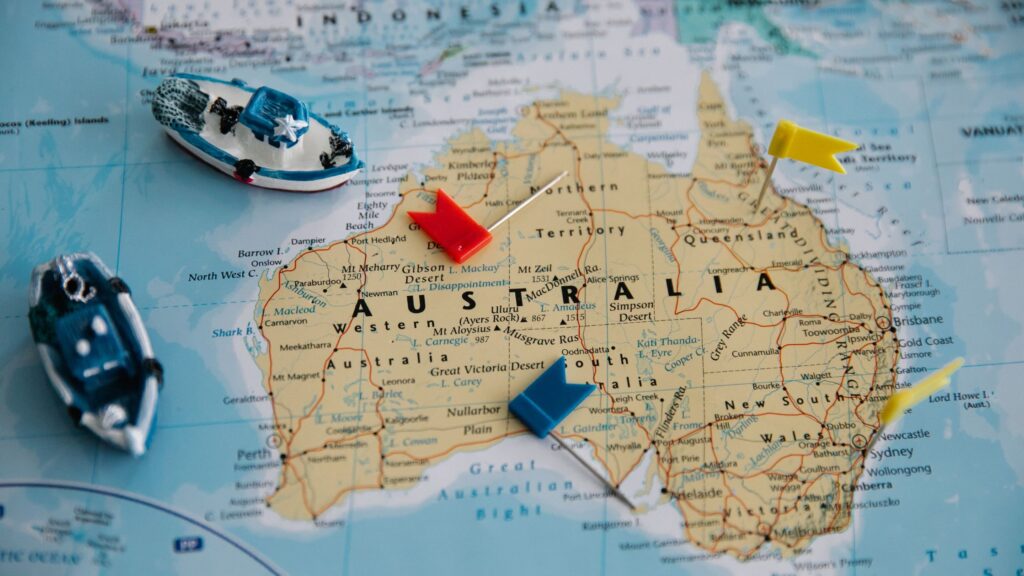Am I really going there? Yes, I get this question a lot. And often, I’m caught off guard, fumbling for the right words, unsure how to respond, mostly because I might not know enough about the person in front of me and how they might respond to my reply.
Let me start by saying that I am speaking from some experience. Sure, I’m a standard, white, 50-something-year-old woman. But I grew up during Apartheid in South Africa—on the “privileged” side of the fence, let’s say. Still, I’ve lived in countries where I was the minority and felt alone in a crowd—whether because I did not speak the language or looked different from the locals. The feelings and stares are the same. I have been on either side of the racism fence.
“What was it like as a teen in the 80s during apartheid?” people often ask me. Well, suffice it to say, we grew up with social norms that were very different—very segregated—with a strong hierarchy in place. Looking back now, I’m appalled.
I had “white privilege”; there was almost a sense that being black was synonymous with being dirty. In reality, it wasn’t that black people were dirty; they simply did not have the same facilities to begin with.
For example, we had park benches marked “whites only.” Can you imagine? Black people literally had to sit on the ground, which was perceived as them being “dirty.” The fact that they did not have a bench was not the point back then. Now that I think about it, they probably weren’t even allowed in our privileged parks.
Horrific.
I was unknowingly part of the problem. In my defence, I was a child, but in my world, everyone seemed quite happy with the arrangement.
Of course, I would think that.
Apartheid taught me to be sensitive to the feelings of others. Treat everyone with respect, and you will receive the same in return. We are all just human; we come into the world and leave it: pretty much the same way!
I often share the story of when I lived in France and visited a small shopping centre in my village. Going to the shops was always a rehearsal for me—I needed to prepare what I would say and have it translated (with no Google Translate—just my Collins bilingual dictionary and my phrasebook).
A visit to the dry cleaner was a pretty straightforward affair after a few months of learning French, but I always double-checked. One day, the elderly man behind the counter spoke English to me:
“Where are you from?” he asked.
A little shocked that he spoke English after all my practice and determined to keep up my French, I replied, “Afrique du Sud.”
I still remember how big my smile was when I replied, so pleased with myself!
He smiled (which is quite unusual for French people who assume anyone speaking English is British) and said to me, “You speak good French for a South African.”
YES! I received a compliment on my French from a native speaker! See, I can do this “French life”. In retrospect, though, I wondered how many South Africans he actually knew.
Was this discrimination? Did I feel he had been almost racist toward me for two years because he thought I was British? There is a long-standing rivalry between the two countries.
In the context of apartheid’s horrors, this story may seem weak as an account of feeling racism. But my point is that sometimes it’s our mindset and our reactions to comments that affect the outcome—mostly for us, the people who feel wronged.
If we expect racism, it may find us more quickly because we are open and sensitive to it. The reaction can be more hurtful than the words themselves.
Recently, I watched a social media post where an African-American mother asked for opinions from others living in Sydney:
“If I move, would my son suffer racism? What is it like for Black children there?”
Firstly, my heart goes out to this mother for having to ask this question in this day and age. There were almost twenty replies, and only one was negative.
I’m not sure this can be counted as a valid poll or opinion, but it did make me feel better because all the replies came from people of colour. Comments included:
“People here are too busy enjoying life to worry about it.”
“There are so many migrants; I don’t feel like I stand out.”
“Good and bad people exist around the world; don’t overthink it.”
Australia is very multicultural; there is no denying this. The country literally grew from migrants—mostly convict migrants who arrived on the first boat in 1788—not that long ago.
Then there were ten-pound Poms who arrived of their own accord; the gold rush of the mid-19th century brought even more migrants. Since World War II, we have had an active skilled migration attraction program.
Today, our population exceeds 26 million, yet much of the media labels us as “racists.” There is a history; I’m not denying that—but in today’s society, it pales compared to other countries.
To the American lady who posted on Facebook: let’s compare some statistics.
- Black Americans make up 15% of the population, which is about 50 million; Indigenous Australians represent 3.8% of 26 million people.
- Thirty per cent of Australians are born overseas—remember that ALL Australians have foreign heritage—so this 30% is now first-generation; permanent migrants comprise 44% of the population in America, with Mexico being the primary country of origin.
There is a fine line for the media between sensationalising racial discrimination and raising awareness to create change.
Some media outlets strike this balance better than others—just as some countries manage racism more effectively than others do.
There is also a fine line between what constitutes a racial slur and what might simply be someone being overly sensitive to a passing comment.
Either way, if there’s a phone camera present, it will likely be sensationalised and taken out of context.
Returning to my original question: Is Australia racist?
Overall—and based on my experience with my “African” mindset—I would say no.
Are there racial incidents? Yes.
Are there motorcycle gang incidents? Yes—more motorcycle gang incidents than racially motivated incidents in Australia (although many go unrecorded on both counts).
The 2021 census reports that 82% of people in jail in Australia are Australian citizens—just for those who think all crime is committed by non-Australians or who worry that we lock up every Aboriginal person we can.
To those people: no, elephants don’t walk down the streets of Johannesburg, and koalas are not synonymous with “drop bears”—just an inside joke.
South Africa has had its fair share of activists rallying against racism. Did you know that even Mahatma Gandhi’s experiences in South Africa were formative for him as an activist and leader? His time there laid the groundwork for his lifelong commitment to nonviolence and his belief in peaceful protest as a means for effecting change.
Aside from Martin Luther King Jr., who was an American activist, one of the kindest human beings and activists closer to home for me would have to be Nelson Mandela. To spend twenty-five years in jail and be released without anger is a testament to us all. He could have been bitter or hypersensitive but chose kindness instead—to break down barriers and dismantle hierarchies in South Africa through compassion.
“Resentment is like drinking poison and then hoping it will kill your enemies.”
This quote encapsulates Mandela’s understanding that holding onto anger, resentment, and hatred only harms oneself without bringing about meaningful change or reconciliation. Instead, he advocated for forgiveness, healing, and finding common ground as essential steps toward building a more just and inclusive society.
Can we all try this—a bit of kindness?







